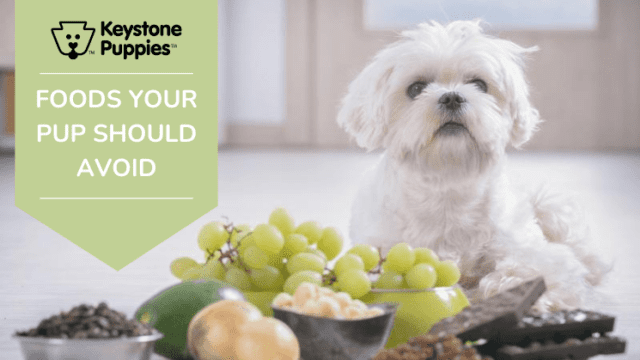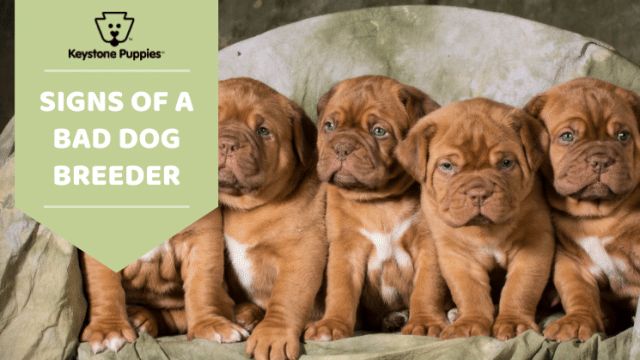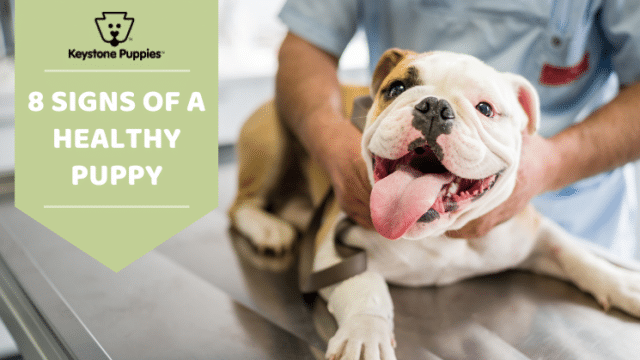How To Sniff Out a Puppy Mill
Key Signs & Questions to Ask a Breeder Before Bringing a Puppy Home
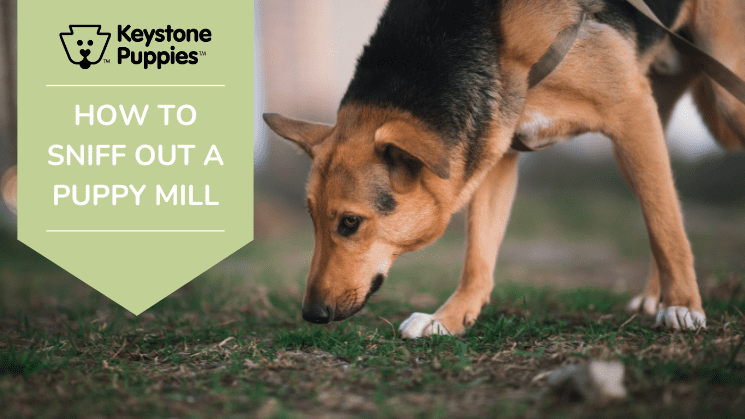
A common question dog owners might fear after bringing home a specific breed is, “Did you go to a puppy mill?” Understanding where your new furry friend came from is crucial for knowing their background and potential health issues.
Learning about what a puppy mill is and its impact on dogs and consumers will help you avoid these unethical breeders, helping you make informed choices when finding your new pet.
What Is a Puppy Mill Exactly?
A puppy mill is basically a breeding facility used for profit rather than the well-being of the dogs involved. They operate in unethical ways and ignore proper breeding practices that are safe and natural to dogs. Not only that, but puppy mills usually are overcrowded with puppies and damaging to their health. Below are ways that puppy mills make an impact on both the dog and owners:
- Love: Unfortunately the dogs, specifically the mothers do not get the love and attention they deserve. They are often left in uncomfortable settings, and in some cases, even discarded after they are too old to give birth.
- Health Issues: Living in cramped conditions can be a breeding ground for germs which could cause immediate or future health complications that an owner won’t be aware of until later.
- Stress: Being crammed in uncomfortable and unsanitary conditions can cause serious distress, affecting a dog’s behavior and leading to lifelong trust issues with humans.
How to find reputable puppy breeders
Finding an ethical breeder is key to ensuring you that your future puppy, and their parents, are well taken care of. Sometimes images can be misleading, so it’s best to follow these tips so that you make an educated decision.
Signs of a Reputable Breeder
- Breeder Meets in Person: It’s important to meet the breeder in person to see the facility where your puppy came from. A trustworthy breeder will be very responsive to contact and happy to answer any questions you have.
- Ask for References: If you know someone who has gotten a puppy from a breeder, speak to them about their experience and how the process was.
- Ask for Paperwork: Puppies should come with paperwork that states they’ve received vaccinations and health clearances by a professional.
- Request to See the Parents: Ask the breeder if you can meet the mother and father of the puppy. If they are hesitant to introduce you to them chances are that they are poorly taken care of.
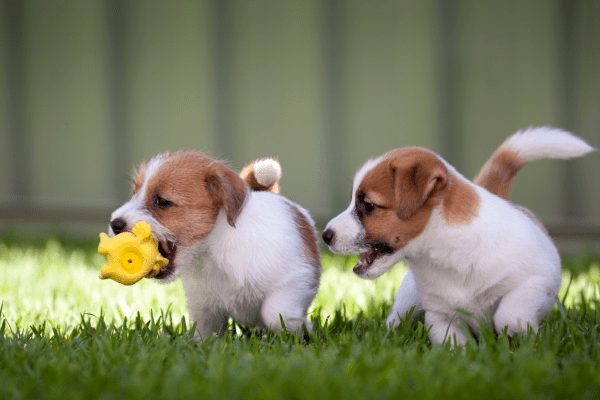
Signs of a Puppy Mill
- Breeder Won’t Let You Meet the Puppy’s Parents: If the breeder does not allow you to meet the puppy’s parents or makes excuses on the day of the visit, this is a red flag.
- No Paperwork: Ethical breeders will always have paperwork and health records to take home with you. Disregarding this is a warning sign.
- No Interviewing Process: Reputable breeders typically screen prospective geters to ensure the puppies are going to well-suited homes. If there is no screening process, be cautious.
- Meeting up at a Selected Location: It’s best to meet a breeder at their place of business so you can meet the puppy’s parents and witness the living conditions firsthand. Arranging to meet at a local convenience store or other neutral location is not an ethical way to acquire a dog..
- Constant Advertising: If you see consistent ads on multiple platforms, this can be a sign of a puppy mill. A lot of breeders who advertise heavily may be more focused on profit than the well-being of the dogs.
Questions to Ask a Breeder Before Bringing a Puppy Home
We addressed signs of reputable breeders vs non-reputable, but it’s always important to ask questions before taking fido home. Here are a few questions to ask your puppy’s breeder before the day of pick up:
- What’s your experience with breeding? Learning about their history with breeding will give you a better grasp of their understanding of best practices.
- Can you provide me with references? References along with photos of their most recent puppies help gain trust.
- Where does my puppy sleep/reside? Learning about where your puppy has been spending their early months is a good way to learn about their living conditions.
- Can I meet the puppy’s parents? If they decline to introduce you to the parents, be wary of how they treat their dogs.
- Can you provide me with health records? Getting a hold of your future puppy’s paperwork ensures that the breeder is following ethical breeding practices.
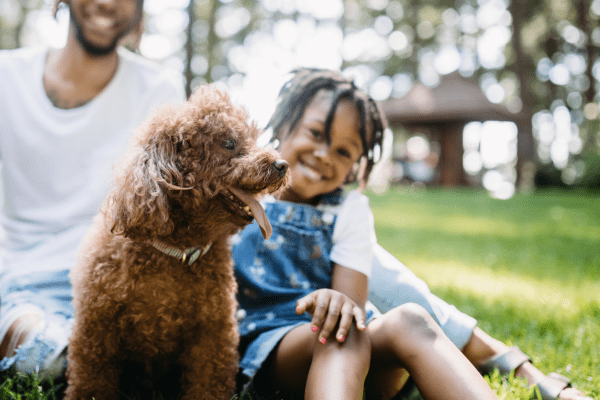
Keystone Puppies’ Stance on Puppy Mills
At Keystone Puppies, we firmly oppose puppy mills and refuse to be affiliated with them in any way. We are committed to promoting ethical breeding practices and prioritize the health and well-being of dogs above personal profit.
Our website is dedicated to linking responsible breeders with individuals looking to find a fur-ever companion. Should we suspect any listing on our website of being associated with a puppy mill, we take immediate action to remove it.
Check out our Keystone Puppies Promise for more information.


